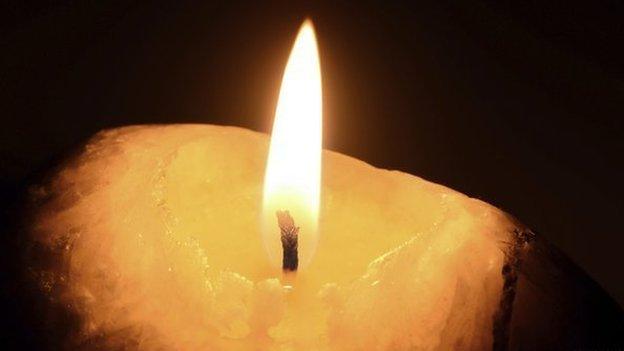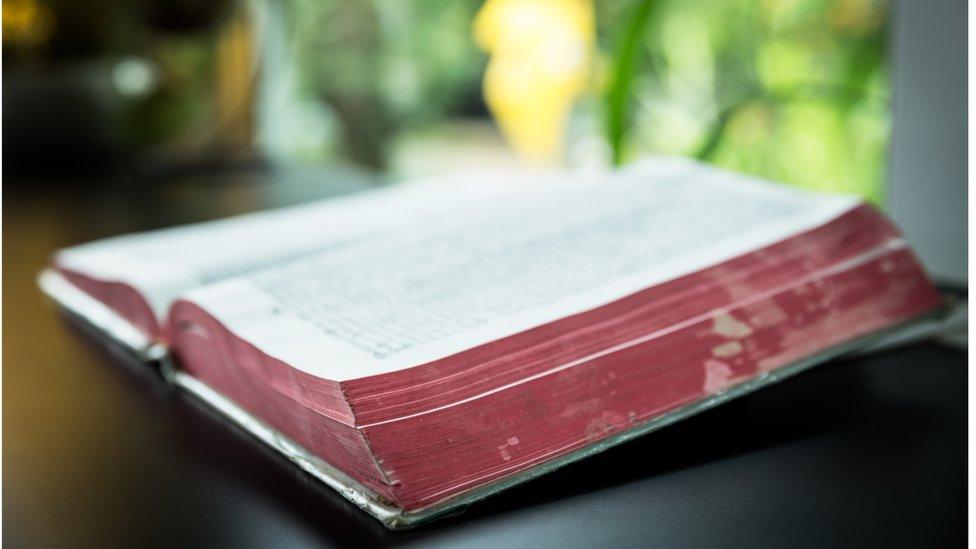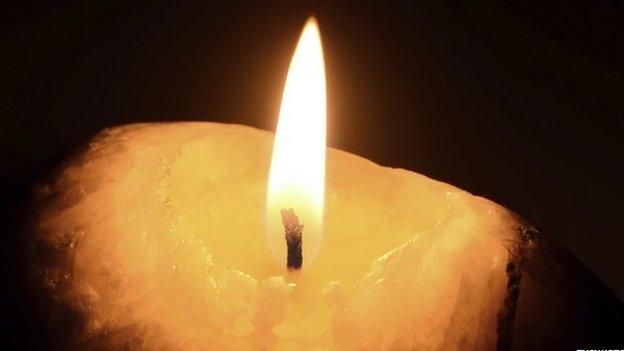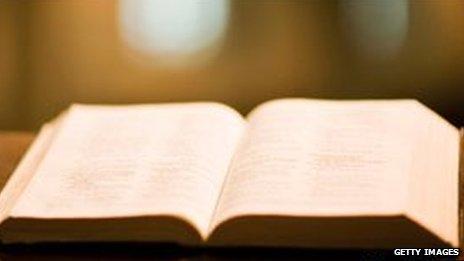Religious education in England 'needs overhaul'
- Published

Religious education has not kept pace with dramatic changes in religious belief, says the report
Religious education in England's schools needs a total overhaul to bring the subject into the 21st Century, argues a report.
Religious belief has changed sharply in recent years but religious education has not kept pace, says the Goldsmiths, University of London, report.
"Content should reflect the real religious landscape," said co-author Prof Adam Dinham.
The government says its approach promotes knowledge of all religions.
The report comes after a High Court ruling that the government made "an error of law" in leaving "non-religious world views" out of a new religious studies GCSE to be taught from next year.
Non-believers
The report, RE for REal, external, considers the subject throughout the education system.
Teaching is currently required to reflect mainly Christian traditions while also taking into account the teaching and practices of other principal religions - but official statistics from the 2011 Census, external showed an increasingly fractured pattern of religious belief, argue the authors.
Christianity was the largest religion in the 2011 Census, with 59.3% declaring themselves Christian, while Muslims made up 4.8%, but the proportion who said they had no religion rose from 14.8% in 2001 to 25% in 2011.
"The religious landscape now includes religious traditions, informal religion and beliefs as well as non-religious world views," said Prof Dinham.
"We think non-believers and those with informal beliefs need to be treated more seriously as a growing part of the picture."
That picture has been further complicated by the exclusion of RE from the EBacc performance measure, which has led to teaching time for the subject being squeezed in many secondary schools.
In addition, academies and free schools, which will soon become the majority of schools, are exempt from following locally agreed RE syllabuses.
This makes the need for clarity "pressing", says the report, with an "urgent conversation" needed about the future of learning about religion and belief.
National approach
Interviews with teenagers across England revealed a desire for the truth beyond media stereotypes of major religions and a feeling that religious education was increasingly important, says the report.
But even the name of the subject is a major problem, argue the authors.
"It has a really low status and it needs a new name," said Prof Dinham.
Ideas put forward included "religious literacy", "religion and belief studies" or "religion, belief and secularity studies".
Primarily, the authors recommend a national panel to develop a new statutory framework for the subject which would be applicable to all schools and would balance a national approach with local needs.
It should also be compulsory for all students to 16, they add, though taking it at GCSE should remain optional.

A panel should be set up to develop a national statutory framework for the subject, say the authors
Daniel Hugill, chairman of the National Association of Teachers of Religious Education, said the key was better training for all teachers of RE.
"This report confirms what RE teachers know already, that the students in their classrooms value the opportunity to develop knowledge and understanding of the phenomena of religion and belief...
"In order for every young person to experience high quality religious education we need the Department for Education and school leaders to value and make further investment in teacher training and ongoing professional development.
"It is only when teachers are well-trained, confident, and knowledgeable that they can equip students with knowledge of lived contemporary religion and belief."
The government did not directly respond to calls for reform but a Department for Education spokeswoman said religious education was vitally important to help children develop the British values of tolerance, respect and understanding for others.
"It prepares young people for life in modern Britain and that is why it remains compulsory at all key stages.
"Local authorities are responsible for drawing up locally agreed syllabuses that must be followed by maintained schools without religious designation," said the spokeswoman.
- Published31 January 2015

- Published18 March 2014

- Published6 October 2013

- Published4 July 2013